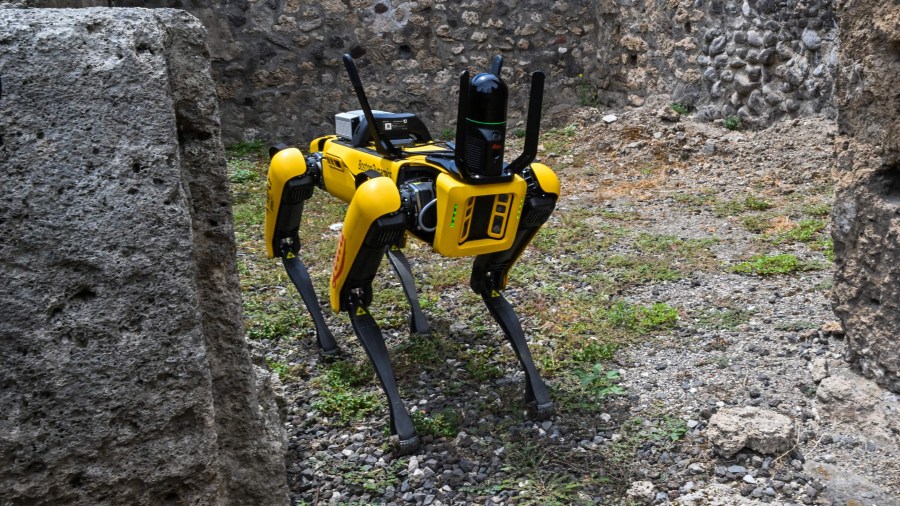A four-legged “robot dog” is the newest member of the Los Angeles Police Department after the City Council voted 8-4 to approve its acquisition on Tuesday.
The robot – a quadruped unmanned ground vehicle called “Spot” – is manufactured by Boston Dynamics and is valued at nearly $280,000.
Spot was first offered as a gift to the LAPD’s Metropolitan Division by the Los Angeles Police Foundation in March. The foundation is a nonprofit group that has “awarded more than $44 million in grants to the LAPD” since 1998, according to its website.
LAPD said the robot will be used in a limited number of scenarios including “incidents involving active shooters, assessment of explosives, hostage situations, natural disasters, hazardous materials assessment, barricaded suspects and search and rescue missions.”
Spot will not be equipped with any weapons systems, facial recognition software or analysis capabilities, officials said. It will also not be used for routine patrol duties or covert surveillance operations.

Some critics, however, are concerned the robot would be misused to monitor and target people in poor communities of color.
Activists have been protesting the move for months and appeared at the Tuesday council hearing to voice their opposition.
“We know that we’re not going to see robo rover peddling up the streets of Brentwood or the Palisades,” said Paul Freedman with the Los Angeles Community Action Network. “This is going to be deployed in areas where we blow up firework semis.”
LAPD’s acquisition of Spot follows similar moves from other law enforcement agencies including the New York Police Department, the Massachusetts State Police, the St. Petersburg Police Department in Florida, and others.
Officials said LAPD plans to begin using the robot in the coming months following training and testing protocols.
“I am appreciative of the approval today by the majority of the City Council in accepting the donation of the Los Angeles Police Foundation in acquiring this state-of-the-art mechanical robot,” said LAPD Chief Michael Moore. “This technology will allow us to better protect our officers and the community allowing us to use modern technology to de-escalate dangerous situations.”





















